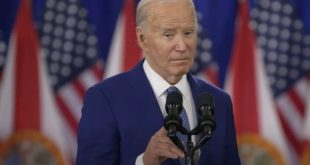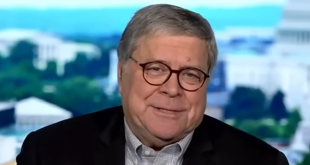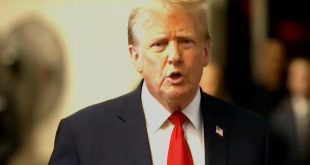Mark Shields, a piercing analyst of America’s political virtues and failings, first as a Democratic campaign strategist and then as a television commentator who both delighted and rankled audiences for four decades with his bluntly liberal views and sharply honed wit, died on Saturday at his home in Chevy Chase, Md. He was 85.
His daughter, Amy Shields Doyle, said the cause was complications of kidney failure.
Politics loomed large for Mr. Shields even when he was a boy. In 1948, when he was 11, his parents roused him at 5 a.m. so he could glimpse President Harry S. Truman as he was passing through Weymouth, the Massachusetts town south of Boston where they lived. He recalled that “the first time I ever saw my mother cry was the night that Adlai Stevenson lost in 1952.”
A life immersed in politics began in earnest for him in the 1960s, not long after he had finished two years in the Marines. He started as a legislative assistant to Senator William Proxmire of Wisconsin.
He then struck out on his own as a political consultant to Democratic candidates; his first campaign at the national level was Robert F. Kennedy’s ill-fated presidential race in 1968. Mr. Shields was in San Francisco when Kennedy was assassinated in Los Angeles. “I’ll go to my grave believing Robert Kennedy would have been the best president of my lifetime,” he told The New York Times in 1993.
He had successes, like helping John J. Gilligan become governor of Ohio in 1970 and Kevin H. White win re-election as mayor of Boston in 1975. But he was certainly no stranger to defeat; he worked for men who vainly pursued national office in the 1970s, among them Edmund S. Muskie, R. Sargent Shriver and Morris K. Udall.
“At one point,” Mr. Shields said, “I held the N.C.A.A. indoor record for concession speeches written and delivered.”
As the 1970s ended, he decided on a different path. Thus began a long career that made him a fixture in American political journalism and punditry.
He started out as a Washington Post editorial writer, but the inherent anonymity of the job discomfited him. He asked for, and got, a weekly column.
Before long, he set out on his own. While he continued writing a column, which came to be distributed each week by Creators Syndicate, it was on television that he left his firmest imprint.
From 1988 until it was canceled in 2005, he was a moderator and panelist on “Capital Gang,” a weekly CNN talk show that matched liberals like Mr. Shields with their conservative counterparts. He was also a panelist on another weekly public affairs program, “Inside Washington,” seen on PBS and ABC until it ended in 2013.
In 1985, he wrote “On the Campaign Trail,” a somewhat irreverent look at the 1984 presidential race. Over the years he also taught courses on politics and the press at Harvard and the University of Pennsylvania.
His longest stretch was as a commentator on “PBS NewsHour” from 1987 through 2020, when he decided at age 83 to end his regular gig. A self-described New Deal liberal, Mr. Shields was the counterpoint to a succession of conservative thinkers, including William Safire, Paul Gigot, David Gergen and, for the last 19 years, David Brooks.
In a panegyric to his colleague, Mr. Brooks wrote in his New York Times column in December 2020 that “to this day Mark argues that politics is about looking for converts, not punishing heretics.”
Mr. Shields’s manner was rumpled, his visage increasingly jowly, his accent unmistakably New England. He came across, The Times observed in 1993, as “just a guy who likes to argue about current events at the barbershop — the pundit next door.”
His calling card was a no-nonsense political sensibility, infused with audience-pleasing humor that punctured the dominant character trait of many an office holder: pomposity. Not surprisingly, his targets, archconservatives conspicuous among them, did not take kindly to his arrows. And he did not always adhere to modern standards of correctness.
Of President Donald J. Trump, Mr. Shields said dismissively that “the toughest thing he’s ever done was to ask Republicans to vote for a tax cut.” The House Republican leader Kevin McCarthy was “an invertebrate”; Senator Lindsey Graham made Tonto, the Lone Ranger’s loyal sidekick, “look like an independent spirit.” In both major parties, he said, too many are afflicted with “the Rolex gene” — making them money-hungry caterers to the wealthy.
Asked in a 2013 C-SPAN interview which presidents he admired, he cited Gerald R. Ford, a Republican who took office in 1974 in the wake of the Watergate scandal. Ford, he said, was “the most emotionally healthy.”
“Not that the others were basket cases,” he said, but “they get that bug, and as the late and very great Mo Udall, who sought that office, once put it, the only known cure for the presidential virus is embalming fluid.”
Politics, he maintained, was “a contact sport, a question of accepting an elbow or two,” and losing was “the original American sin.”
“People come up with very creative excuses why they can’t be with you when you’re losing,” he said. “Like ‘my nephew is graduating from driving school,’ and ‘I’d love to be with you but we had a family appointment at the taxidermist.’”
Still, for all their foibles, he had an abiding admiration for politicians, be they Democrats or Republicans, simply for entering the arena.
“When you dare to run for public office, everyone you ever sat next to in high school homeroom or double-dated with or car-pooled with knows whether you won or, more likely, lost,” he said. “The political candidate dares to risk the public rejection that most of us will go to any length to avoid.”
Mark Stephen Shields was born in Weymouth on May 25, 1937, one of four children of William Shields, a paper salesman involved in local politics, and Mary (Fallon) Shields, who taught school until she married.
“In my Irish American Massachusetts family, you were born a Democrat and baptized a Catholic,” Mr. Shields wrote in 2009. “If your luck held out, you were also brought up to be a Boston Red Sox fan.”
He attended schools in Weymouth and then the University of Notre Dame, where he majored in philosophy and graduated in 1959. With military conscription looming, he chose in 1960 to enlist in the Marines, emerging in 1962 as a lance corporal. He learned a lot in those two years, he said, including concepts of leadership encapsulated in a Marine tradition of officers not being fed until their subordinates were.
“Would not our country be a more just and human place,” he wrote in 2010, “if the brass of Wall Street and Washington and executive suites believed that ‘officers eat last’?”
As he set out on his career in politics, he met Anne Hudson, a lawyer and federal agency administrator. They were married in 1966. In addition to his daughter, a television producer, he is survived by his wife and two grandchildren.
There were bumps along the road, including a period of excessive drinking. “If I wasn’t an alcoholic, I was probably a pretty good imitation of one,” he told C-SPAN, adding: “I have not had a drink since May 15, 1974. It took me that long to find out that God made whiskey so the Irish and the Indians wouldn’t run the world.”
Some of his happiest moments, he said, were when he worked on political campaigns: “You think you are going to make a difference that’s going to be better for the country, and especially for widows and orphans and people who don’t even know your name and never will know your name. Boy, that’s probably as good as it gets.”
 Top Naija News: Nigerian News, Breaking News Nigeria and World News Top Naija News is a daily news publication in Nigeria, delivering the latest breaking news in Nigeria and around the world.
Top Naija News: Nigerian News, Breaking News Nigeria and World News Top Naija News is a daily news publication in Nigeria, delivering the latest breaking news in Nigeria and around the world.



